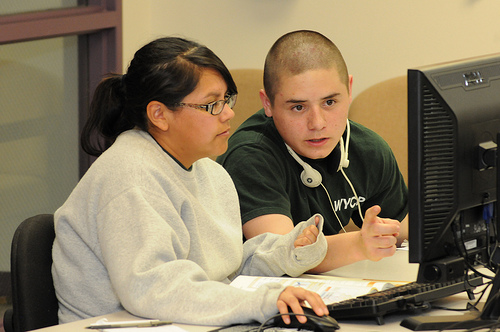 1. Focus on a goal
1. Focus on a goal
When you’re writing a regular essay, you know that you have to have a thesis to focus your paper. In the same way, a college autobiography also needs a thesis. In this case, your thesis will be your goals in life and how getting into this college program will help you achieve your goals.
An example would be if you want to become a green energy architect. Your thesis would be that you need a masters degree in architecture to achieve your goal, that this particular college has the perfect masters degree program for you, and that you are a perfect candidate for the college.
2. Give specific examples of experiences
Affirm your goal in the opening of your statement. In follow up paragraphs, document experiences in the field or during school that correlate to your goal, including the value you learned from each example. In your conclusion, summarize your experiences, what led you to the specific graduate school and why the school is the next step toward your goal.
3. Ditch the boring stuff
In a college autobiography, you should show what you believe you are capable of. Unless relevant, don’t mention where you grew up, which school you went to, or how your friends changed your life. Only mention experiences relevant to your cause that directly improve your chances of getting the scholarship or the place in the college of your choice.
4. Develop clear themes
Identify and develop the themes that run through the information you present to the admissions committee. A theme is a general category or “big idea” that applies to the most important memories of your past, such as identity (how you fit into the world around you), passion (as in lifelong interests), challenges, curiosity, learning, failure, personality, or career.
5. Avoid over-used phrases
Avoid over-used phrases such as: “meant a lot to me,” “I can contribute” and “appealing to me.” You also want to avoid statements that are broad and awkward such as: “I like helping people” and passive voice, such as “I will be” or “I am excited by.”
6. Use specific examples
Use specific examples to illustrate your personal attributes and achievements. For example, instead of saying “this was a valuable learning experience,” tell what you learned. Instead of calling yourself “a responsible individual” or a “born leader,” relate life experiences that demonstrate this.
7. Give a sense of you as a person
Along with your life experiences, include your likes/dislikes, hobbies, achievements, fun facts, or anything that helps the college admissions committee understand what makes you who you are.
8. Show you have outside interests
Be sure to include something that you recently became aware of and how you’ve involved yourself with that topic. Admissions boards want to see that you have interests outside of the classroom and will take initiative in discovering new and exciting fields of research while in school.
9. Include research credits
If you’ve already done research and published it, this is of course important information for the admissions committee. If you have unpublished work, submit it with your application, and someone from the field will judge the quality of the work. If you don’t have any prior research, you can still get in because schools are trying to judge potential to do research.
10. Look into your magic ball
Even if you haven’t decided what kind of work you want to do when you graduate, take a guess based on your current interests. Look into the future and imagine what you see yourself doing in terms of function and industry. If location or geography are important to your goal, include them. If you know the type of companies you would like to work for, you can include that information too.
It’s not written in stone: you can change your mind later. But you need to give the admissions committee an idea of your goals in life.
11. Identify both short-term and long-term goals
Your long term goals should flow logically from your short-term goals. They can be fuzzier and both in terms of direction and timing, but you should have them.
12. Have a Plan B
What’s your Plan B? If you can’t get a job at a leading public relations firm, what do you want to do? If Plan A is investment banking, what’s Plan B? Addressing these questions will show the admissions committee that you are flexible and realistic.
photo credit: flickr.com/photos/wyoguard